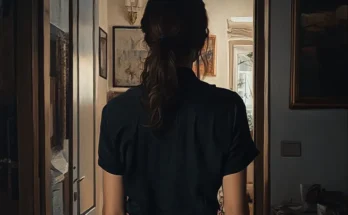Mom called two weeks before the wedding, voice bright as polished silver. “Honey,” she said, drawing out the vowel like a ribbon, “about your dress… maybe pick something… simpler. Yours will outshine your sister’s. It wouldn’t be fair.”
Fair. As if weddings were playgrounds with turn-taking and equal glitter. I swallowed, staring at the gown hanging from my closet door: silk like moonlight, tiny pearls blooming at the seams. It wasn’t extravagant, not really. It was me—quiet shine, careful stitches, hours I’d spent hemming and resewing lace because budgets are real and dreams sometimes need a needle.
“Mom,” I said, “it’s my wedding.”
“I know,” she rushed, “and we want it perfect. But your sister’s been having a tough year. Her dress is… understated. Imagine photos. Imagine how she’ll feel standing next to you.”
I pictured my sister as a small lighthouse at low tide, the sea refusing to rise. I loved her. I loved me, too. I said I’d think about it and hung up, then sat on the floor, back against the door, the gown’s hem brushing my knee like a friend trying to comfort without words.
That night I wrote a letter I didn’t send. It began: “I am not a dimmer switch.”
The days folded like paper cranes. Seating charts, boutonnieres, weather forecasts that changed their mind every hour. My fiancé, Daniel, listened as I tried to explain what it felt like to be asked to shrink. “You don’t have to choose between being kind and being visible,” he said. “You’re not a sunrise that happens at someone else’s permission.”
On the morning of the wedding, Mom knocked before entering the suite. She looked beautiful in plum, her hair pinned like a promise. She held a garment bag. “I brought options,” she said, almost cheerful.
I took her hands. “Mom. I’m wearing my dress.”
Her mouth tightened, then softened. “You always were stubborn.” A beat. “You get that from me.”
We dressed in a modest sort of truce. When I stepped into the gown, the room hushed. Even the air gentled. I saw myself in the mirror—soft, strong, exactly the woman I’d slowly, carefully become. Mom’s eyes glistened. She opened her mouth, then closed it, and instead fixed a strand of hair near my temple, the way she used to before school pictures.
At the ceremony, my sister took my bouquet for a moment and whispered, “You look like you.” Not a compliment about beauty. An observation about truth. Relief opened in my ribcage like windows.
We said our vows. We danced under strings of lights like freckles on the night. In the photos, my sister is laughing, head thrown back, her simple dress catching light the way river stones catch sun—quietly, honestly. Later, she found me by the dessert table and nudged my shoulder. “Thank you for not shrinking,” she said. “Makes it easier for me not to, too.”
When Mom hugged me goodbye, she held on longer than usual. “You were radiant,” she murmured, and then—after a breath—“I forget sometimes that fairness isn’t sameness.”
I walked out with Daniel, the dress swishing around my ankles, and realized the point had never been sparkle. It was permission. It was choosing to be fully present at my own life. And it turned out, when I didn’t dim, nobody else went dark. The room only got brighter.


